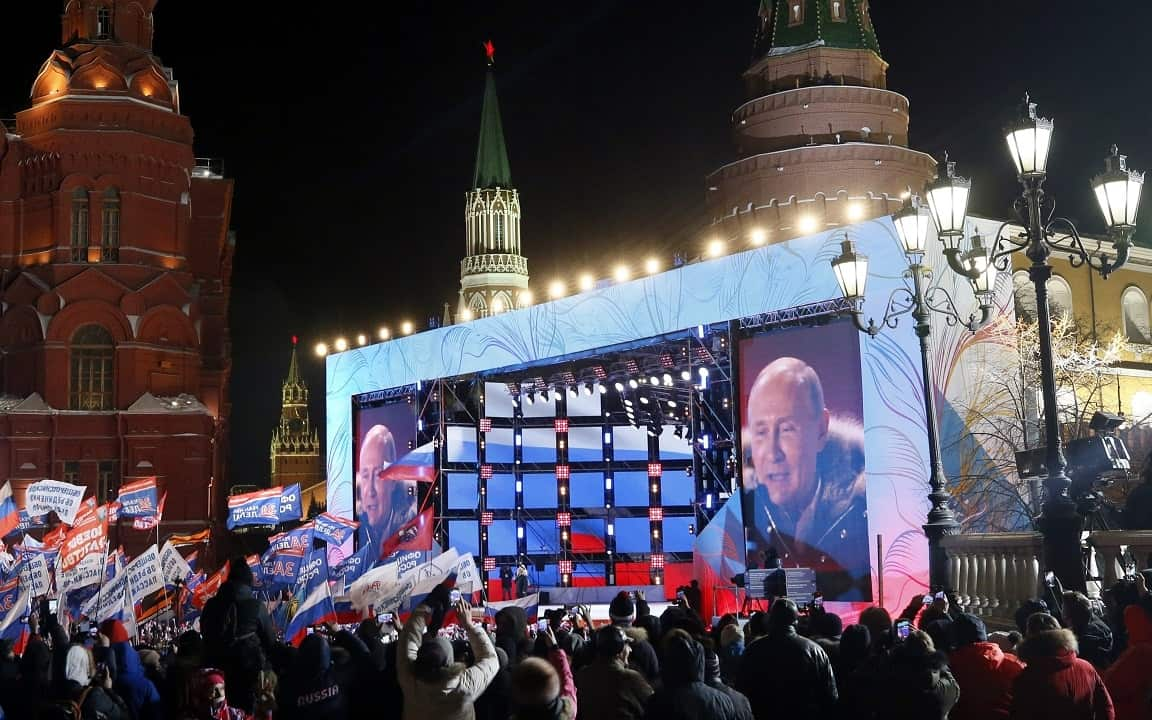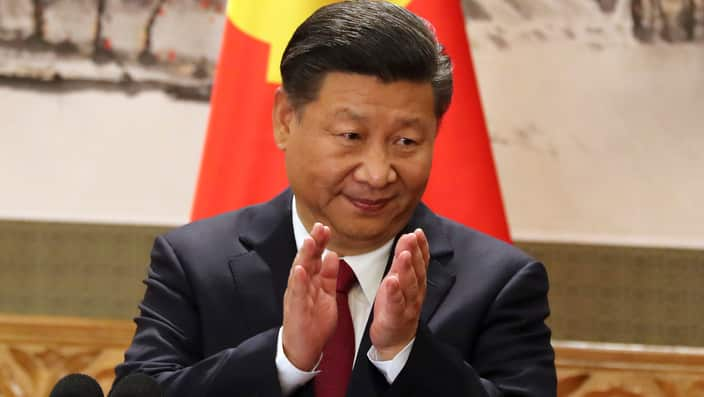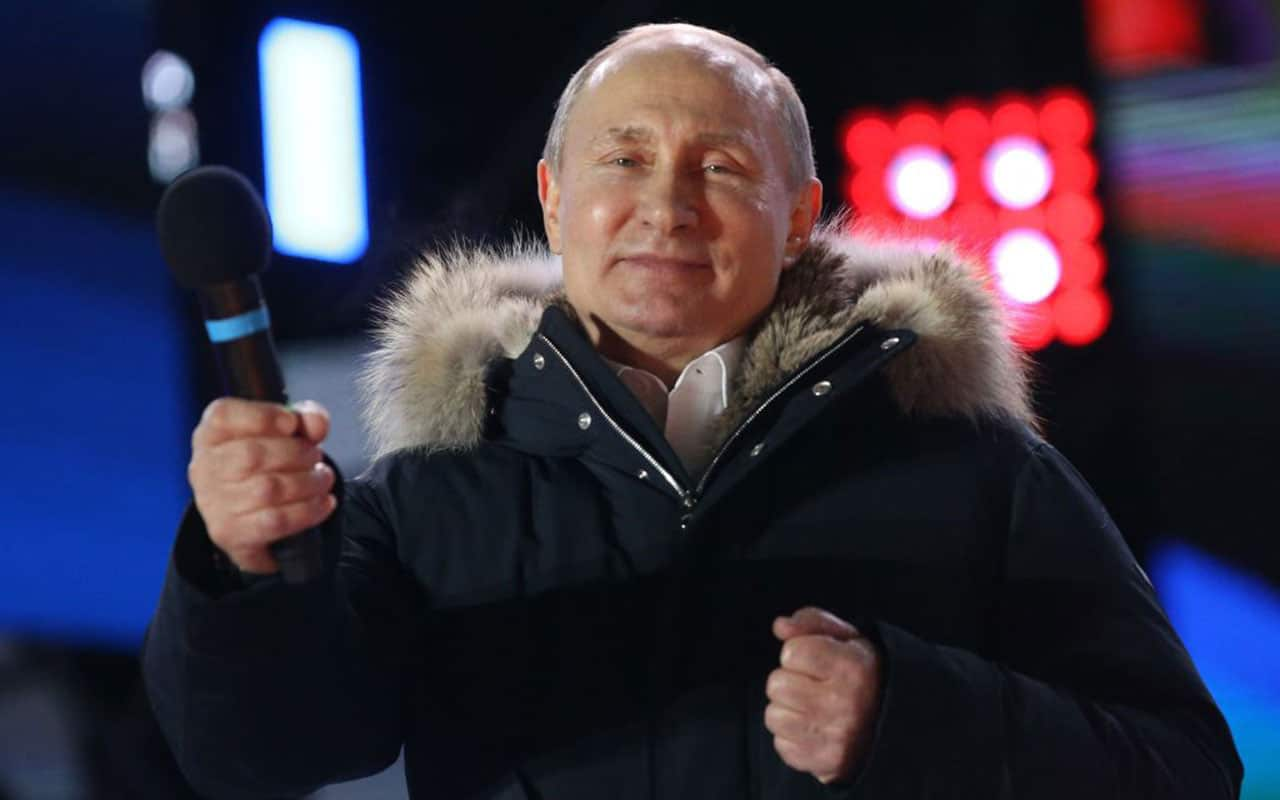In power for almost two decades, Vladimir Putin predictably won a fourth Kremlin term in Russia's presidential election on Sunday, extending his long rule for another six years.
On Monday the central election commission confirmed Putin had won in a landslide victory, receiving 76.67 percent of the vote with 99.8 percent of ballots counted.
With no successor and no political competition, what are the possible scenarios when his term ends in 2024?
Leaving power
Without constitutional reform, Putin will not be able to run for the fifth time - Russian law forbids serving more than two consecutive terms.
Putin, who will turn 72 in 2024, could decide to leave the Kremlin after 24 years in power, making way for a successor.
Russian politics is currently dominated by infighting between rival clans of technocrats and the "siloviki" - representatives of the security services and the army.

Putin has been re-elected as Russian president. Source: AAP
"There is already a fight for influence," said independent analyst Nikolai Petrov. "Nobody will wait passively, each group will try to promote its interests," he added.
In a recent interview with American TV channel NBC, Putin said he has been thinking of a potential successor since 2000.
"There is no harm in thinking about it but at the end of the day it will be the Russian people who decide."
But in making sure no one can compete with him, no political personality is currently popular enough to succeed Putin. Many analysts say Putin leaving power in six years is unlikely.
Switching roles
One way Putin could continue ruling Russia after 2024 is to stay in power in a different role.
The Russian strongman could revisit his move from 2008, which saw him put forward Dmitry Medvedev as president while he himself became prime minister before returning to the Kremlin in 2012.
"Putin may prepare the regime for a transfer of power. But not from Putin to another president but from Putin to Putin in some other role," said Petrov.
But memories of mass protests in Moscow when Putin switched back with Medvedev and returned to the Kremlin may put the Russian leader off this option.
Putin's age also makes this scenario problematic. In 2030, the next time Putin is constitutionally allowed to run for another term, he will be 78.
Could Putin become president for life?
Putin could choose to follow China's Xi Jinping in abolishing presidential term limits, thus allowing him to remain president for life.
"I don't think he will refuse power in 2024 even if he has had enough, he is (already) visibly tired," said political analyst Dmitry Oreshkin.

Chinese President Xi Jinping has congratulated Putin for his re-election. Source: AP
"He can't leave because he does not believe that anyone will protect him," he added, saying that Putin has built a system in which everything depends on who is at the top.
So far, Putin has ruled out ruling Russia for life.
"I never changed the constitution, especially for it to benefit me and I do not have this kind of intention today," he told NBC in March.
Oreshkin said Putin does not want to be remembered for changing the constitution and that if he were to remain president for life, it would be done "more elegantly" than in China.
On Monday President Xi Jinping congratulated Putin on his re-election, saying Beijing was willing to work with Moscow to bring ties to a "higher level".
Putin's landslide win came one day after China's parliament unanimously re-appointed Xi to a second term.

Russian President Vladimir Putin. Source: Getty
Xi has drawn a comparison with Putin as the Chinese leader has consolidated power and gained a path to indefinite rule after the rubber-stamp National People's Congress lifted presidential term limits last week.
"Currently, the China-Russia comprehensive strategic cooperative partnership is at the best level in history, which sets an example for building a new type of international relations," Xi said in a congratulatory message to Putin, according to the official Xinhua news agency.
"China is willing to work with Russia to keep promoting China-Russia relations to a higher level, provide driving force for respective national development in both countries, and promote regional and global peace and tranquillity," Xi said.
Share

